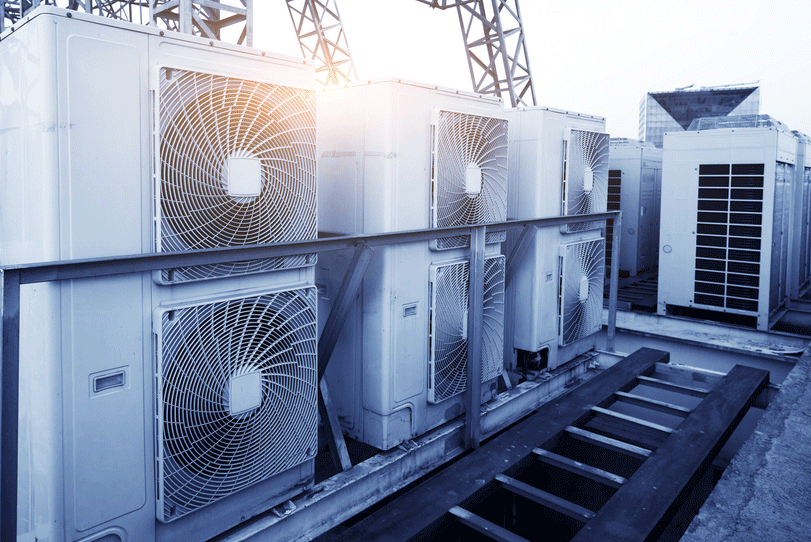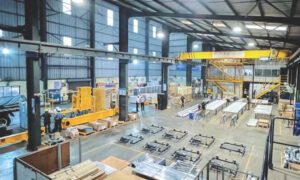No industry can escape the disruption of COVID-19. Here we list the trends that the HVAC industry is going to witness post this pandemic.
Subhajit Roy, Executive Editor
The Indian HVAC market has witnessed unprecedented growth during the past decade on account of rising investments by corporate sector, increased construction activities, rapid industrialisation and the growth of the service sector. The rising need for energy efficient HVAC systems, surging infrastructure-based developments and growing replacement demand for HVAC systems are expected to drive the future industry growth. However, COVID-19 has dealt a severe blow to the industry, leading to a simultaneous collapse of both supply and demand. Also, the COVID-19 pandemic has had a sudden and significant impact on all aspects of our lives – it will change how people reside and work after COVID-19. Once the recovery from the effects of this pandemic starts, the HVAC industry too is expected to witness drastic changes in end-users segments. In order to address such challenges, the manufacturers are gearing up for life after coronavirus. This report highlights some of the key trends that will shape the future of the HVAC industry.
Neeraj Gupta, Senior General Manager – Living Environment Division, Mitsubishi Electric India Pvt Ltd said, “Some of the trends that we can foresee for HVACR business post COVID-19 are online buying as people will be hesitant to venture out especially for the things we can so easily get through the Internet, shifting to high quality highly reliable products to reduce the service team visit to customer premises as human contact will probably still be fearful, increase in warranty terms like up to 10 years for gaining the customer confidence, extension of credit facility through financing companies etc.”
Over the past few years a variety of trends have been shaping the HVAC industry that are designed to make systems not only more efficient, but overall more environmentally friendly. More so after the pandemic, systems will be relying on more modern refrigerants, but technology is doing a better job of meeting HVAC needs, said Gupta.
Daniel Chen, HVAC APAC Marketing Manager, CAREL expressed that COVID-19 has changed everything. He lists:
- More and more consumers are expressing concerns about the environmental impact of the products and services they buy. They are willing to pay more for options that are more health and environmentally friendly than others.
- Smart HVAC systems are in demand more than ever. From self-regulation to sensors to remote temperature adjustment to integration of energy controls, technology gives us more control than ever.
- The Internet of Things, or IoT, is no longer a luxury, but a necessity for remote supervisory and troubleshooting. Even when the pandemic subsides and we return to some semblance of normal life, the remote work trends adopted during the pandemic are likely to remain in some form.
Ventilation is turning out to be the saviour
Talking about the for HVACR industry post COVID-19 world, Rahul Aeron, Assistant Vice President, Sales, DRI – Pahwa Group observes:
“Ventilation is turning out to be the saviour. Prudent ventilation in air conditioned spaces and using cooling machines (evaporative cooling) in industrial spaces will help in retarding the spread of virus.”
Abhishek Khullar, Regional Manager – North & East, Dunham-Bush India said, “The point of focus now is indoor air quality (IAQ) with the help of using a better ventilation system of adding fresh air in the system and using products like Bipolar Ionization (Plasma) and UVGI (Ultraviolet Germicidal Irradiation) in air distribution system.”
Focus on digitalisation and remote monitoring
Considering the increasing demand for sustainable solutions with high levels of energy efficiency, sustainable HVAC solutions with end-to-end applications are expected to pave the way in the post COVID-19 era, said Gaurav Mathur, Business Development (Building Services), Grundfos India. “This is going to be coupled with the demand for technology centric solutions such as IoT to automate the HVAC systems.”
He adds, “We expect building constructions of industry to be focusing more on digitalisation and remote monitoring, which will enhance better indoor air quality and energy efficiency. Productivity in construction industry will receive a big boost from prefabrication, modularisation and standardisation of building equipment such as prefabricated and skid-mounted pumping systems, air-handling units etc. This will be achieved by reducing on-site work, better quality control and faster delivery times.”
Increased level of intelligence
Commercial establishments have multiple occupancy as well as transient visitors that necessitate precaution in operating the HVAC systems. Optimum temperature and humidity levels are extremely important to prevent bacterial infections in the commercial establishments from spreading; also there is a demand for fresh air circulation within the buildings. The HVAC system shall play a major role in bringing employees back to work, by ensuring enhanced level of indoor air quality (IAQ). Actively monitoring temperature, humidity, CO2, noise, light and volatile organic compound (VOC) levels aggregate and rank these conditions with a comfort score and pinpoint issues to improve work environments. This will give rise to IoT sensors distributed evenly across buildings that can monitor and report the air quality, opines Sanjay Sudhakaran, Vice President – Digital Energy, Greater India Zone at Schneider Electric.
He adds, “The industry will drive towards Cloud-based AI system that captures the data and further analyses to provide more meaningful insights into the IAQ. The ability to integrate dynamic data from Cloud-based software with HVAC system is important, so that the systems can be controlled based on the real-time internal air conditions by automatically activating and deactivating the HVAC systems.”
Deal with varied load conditions depending on occupancy rate
Social distancing is the new normal and it is expected to continue for a while. Technology driven social distancing will take precedence to ensure people operate from safe distances. “The HVAC systems will have to deal with varied load conditions depending on the occupancy rate in the buildings due to staggered attendance. Rationalizing square foot occupancy per employee and changing office space usage patterns will be necessary. Higher employee expectations regarding their workspace experience will pose greater challenges in commercial building spaces. Hence, the Facility Managers will be looking out for reliable space management and people management tools to maximize their operational efficiency,” said Sudhakaran.
Smart HVAC systems are in demand more than ever. From self-regulation to sensors to remote temperature adjustment to integration of energy controls, technology gives us more control than ever.
Daniel Chen, HVAC APAC Marketing Manager, CAREL
Ventilation is turning out to be the saviour. Prudent ventilation in air conditioned spaces and using cooling machines (evaporative cooling) in industrial spaces will help in retarding the spread of virus.”
Rahul Aeron, Assistant Vice President, Sales, DRI – Pahwa Group
Considering the increasing demand for sustainable solutions with high levels of energy efficiency, sustainable HVAC solutions with end-to-end applications are expected to pave the way in the post COVID-19 era.
Gaurav Mathur, Business Development (Building Services), Grundfos India
…after the pandemic, systems will be relying on more modern refrigerants, but technology is doing a better job of meeting HVAC needs.
Neeraj Gupta, Senior General Manager – Living Environment Division, Mitsubishi Electric India
The industry will drive towards Cloud-based AI system that captures the data and further analyses to provide more meaningful insights into the IAQ.
Sanjay Sudhakaran, Vice President – Digital Energy, Greater India Zone at Schneider Electric
Cookie Consent
We use cookies to personalize your experience. By continuing to visit this website you agree to our Terms & Conditions, Privacy Policy and Cookie Policy.


















